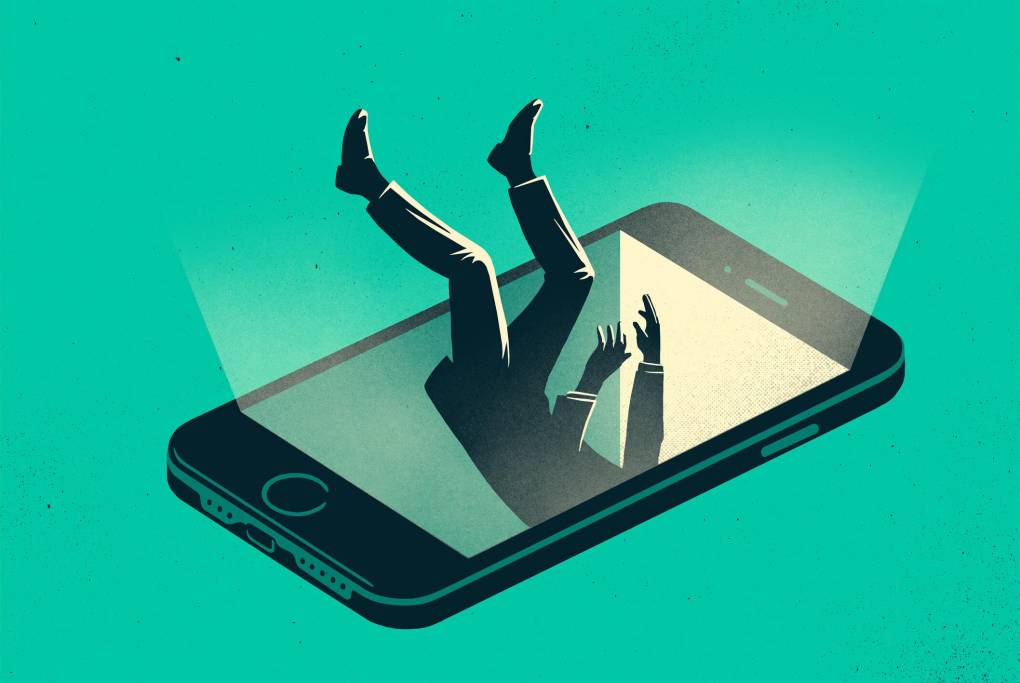So, what would it be like to go back to those days? No social media scrolling, no mobile-app shopping, no streaming shows or media on your phone?
The researchers measured three different outcomes of well-being, mood and attention at the beginning, middle and end of the four-week study. While 91% of participants improved their scores in at least one category, 71% reported better mental health after the break, compared to before, and 73% reported better subjective well-being.
The participants completed a survey often used by doctors to assess symptoms of depression and anxiety. It includes questions such as: How often in the past week have you felt little interest or pleasure in doing things you typically enjoy? The participants’ responses pointed to a significant lift in mood.
One of the surprising findings is that the decrease in depressive symptoms was on par — or even greater than — reductions documented in studies of people taking antidepressant medications.
“The size of these effects are larger than we anticipated,” says the study’s first author, Noah Castelo, an assistant professor at the University of Alberta in Canada.
Of course for some people, medications and/or talk therapy are key to managing mental health, and the researchers are not suggesting less internet time is a replacement for that kind of care.
A break from the internet on their phones also improved participants’ attention spans, which was measured by a computer task. They tracked images that alternated between mountain scenes and cities. Prior research has shown that performance tends to drop off as people age, but to the researchers’ surprise, after the internet break, there was a significant boost in scores. “The effects on attention were about as large as if participants had become 10 years younger,” Castelo says.
It’s not clear how long-lasting the effect of less time online would be, but this study validates what has been found in observational studies. “It’s one of the first experiments that does provide causal evidence that reducing time spent on your phone has all these significant benefits,” Castelo said.
When the participants agreed to block the internet on their phones, they were permitted to continue to use laptops or iPads at work or home, and they could also continue to use their phones to talk or text. So, researchers weren’t sure if participants would swap phones for another form of screen time.
But, as it turns out, breaking the habit of scrolling on their phones led to significant changes in how they spent their time. And, interestingly, each day the break went on, the benefits increased, almost like a positive feedback loop.
“It’s not that you stop using the internet and magically you just feel better,” Ward says. What happened is that people spent more time engaged in healthy behaviors.
“People reported that they spent more time in nature, more time socializing, more time doing hobbies,” he explains. They also got more sleep and felt more socially connected to other people.
“I’m not surprised by the findings,” says Dr. Judith Joseph, a psychiatrist at New York University Langone Medical Center and the author of High Functioning: Overcome Hidden Depression and Reclaim Your Joy. She says surveys show that most people don’t want to be tethered to their devices.
“They know their phones are a problem, but they just can’t stop,” she says. And she says when they start to engage in behaviors such as those seen in study — more exercise, time outdoors, good sleep, more social interactions — it’s not surprising that they start to feel better.
“Helping people to retrain their brain to derive joy from healthy activities has an antidepressant effect,” she says, so she says the findings pointing to a decrease in symptoms of depression and anxiety makes sense.
“If [people] see this improvement in joy in such a short period of time, then that gives us hope,” she says, adding that simple changes can be beneficial.
Try it: Tips for scaling back your own smartphone use
During the study, many participants had to break the rules, just to accomplish things that their jobs or families required them to do, such as turning on a map app to navigate in the car or logging onto a Zoom meeting from their phone. It’s a reminder of how dependent we’ve become on our mobile devices.
It’s nearly impossible to go cold turkey, given the demands of our society. So what to do if you want to try this? “If we’re expected to be accessible at all moments, then how can we just decide that we’re going to disconnect?” Ward asks. It’s a societal struggle.

